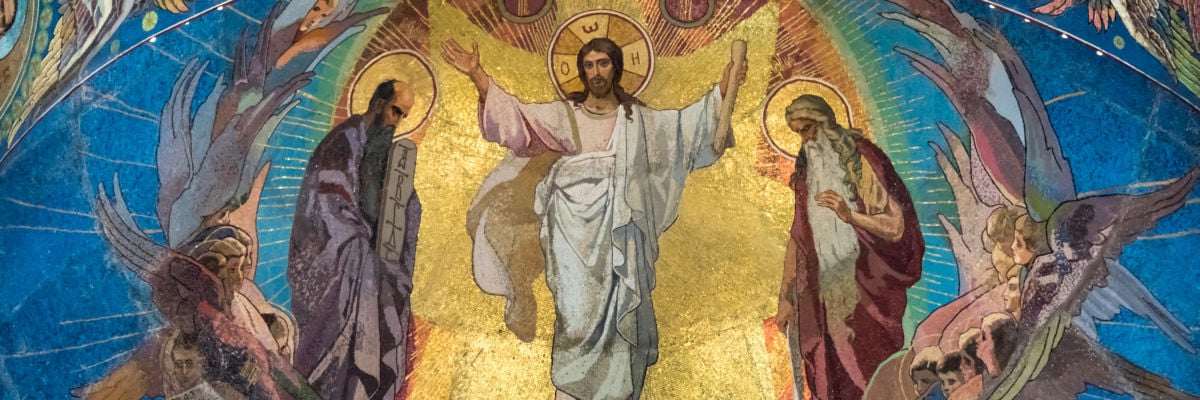
Catholic apologist Joe Heschmeyer joins Cy Kellett to tackle a thought-provoking question from a seventh day adventist about the early Church’s observance of the Sabbath. Tim dives into the historical and theological context, explaining how the transition to Sunday worship reflects the fulfillment of the law through Christ, and addresses common misconceptions about the early Church’s practices. Tune in for a compelling discussion that sheds light on the roots of Catholic belief!
Transcript:
Cy: Julian, why are you not Catholic?
Caller: I hate it when you ask me that question. But you know what, I’ll tell this quickly. My friend three years ago told me that if I listen to Catholic radio for a month, I become a Catholic. And I promise you, every night for the last three years I’ve listened to you guys and guess what? I am more entrenched in my belief system than anything else. But here’s the question. The early church cannot be the Catholic Church because the early church was a Sabbath-keeping church. What do you think that?
Joe: Well, great. So the question I ask in the book is when people make claims like that to say, like when did it change? When did, when, according to your view, when did Christians start to worship on Sunday instead of Saturday?
Caller: Well, we don’t want to answer that question now. That’s not the question. I want to tell you that the early church kept the Sabbath because yesterday I was listening to the program and Tim Staples, I think he said that Jesus came to fulfill the law to that extent to where he got away with it. But Jesus said, I didn’t come to destroy the law. I came to show you how it’s done. So all throughout the Book of Acts, we see where the early church kept the Sabbath. And again, I will tell you, when John was on the isle of Patmos, he says, I was in the spirit on the Lord’s day. And the Lord’s day is not Sunday. The Lord’s day is the Sabbath according to Exodus, chapter 20. And that Sabbath commandment in there 10 through 11.
Joe: Okay, let’s unpack those things. I noticed you’re still not kind of giving an answer to the question of when you think this switch happened because you’re making a historical claim that Christians in the first century worshiped on Saturday and not Sunday. But all of the available evidence we have actually says they worshiped on Sunday. We have the Didache and we have Justin Martyr from the first and then the second century talking about why worship is on Sunday. And the Didache actually refers to Sunday as the Lord’s day. And it’s older than the Book of Revelation.
Caller: Well, I tell you what, let us just stick with the Book of Acts. Okay, so we see where Paul was speaking to the Jews in the synagogue and the Gentiles were standing outside. And the Gentiles, after Paul was done, the Gentiles told Paul, why don’t you come to our church that next Sabbath so we can hear you preach and that’s enough.
Joe: Yes. So for sure, when Paul was going to preach to the Jews, he would preach to them on Saturday because they were assembled in the synagogue. I mean, there’s no question about that. That doesn’t tell us when Christian worship happened. That just says if you want to get all of the Jews gathered in one place, your best bet is Saturday. That would still be true today, by the way.
Caller: But I just gave you an example of the Gentiles inviting Paul to come and talk to them at their own church the following Sabbath. The Gentiles weren’t Jews.
Joe: Well, right. But God-fearing Jews were those who’d accepted Judaism who weren’t considered Jewish, but like pagans didn’t get together on Saturday. And so presumably the Gentiles here aren’t talking about people saying come to our pagan temple on Saturday because that’s not when pagans worshiped.
Caller: But sure didn’t. Jesus says that heaven and earth shall pass away, but not one jot or tittle in the law will pass away. Which means the Sabbath commandment, which is part of the Ten Commandments, Jesus says will not pass away until heaven and earth passes.
Joe: He also says he comes to fulfill the law. And so there’s a lot of the law that we don’t still keep. And so we’re told that very explicitly in Acts, for instance, you don’t still have to be circumcised, even though the language of circumcision in the Old Testament sounds like it’s an eternal covenant. And so for instance, also in Colossians 2:16, as I’m sure you know, St. Paul says, do not let anyone judge you by what you eat or drink, or with regard to a religious festival, a new moon celebration or a Sabbath day, that this is not to be an issue that the Christians are bound by, that they have to worship on the Sabbath. Paul is 100% explicit about that. And that threefold language about Sabbath, new moon, appointed festivals is Old Testament going back to 2 Chronicles 2:4, which is talking about the three divisions of the Jewish liturgical calendar, that that is just not binding on Christians. And Paul says it outright that this has all been fulfilled in Christ.
Caller: Now Joe, you, I think you’re mixing up the ceremonial law versus the moral law, God’s Ten Commandments law, which was placed in the Ark of the Covenant and the ceremonial laws are those other laws that Moses wrote outside of that when Jesus died, that’s what he nailed to the cross, the ceremonial law, the animal sacrifices, all of that. But the moral law of God was written on stone. And Jesus said, I have taken those words, Paul says that God took those words and placed it in our hearts. So the Ten Commandments is in our hearts. And also James said that we are going to be judged by the perfect law of liberty, which is the Ten Commandments.
Joe: So I appreciate your perspective on this, but I think you’re kind of jumping around. You said, let’s only focus on Acts, but you’re not really focusing on Acts. You’re really focusing on when did this switch from Saturday to Sunday happen? You’re not really focusing on what do the early Christians mean by the Lord’s Day? What does John mean by saying you worship on the Lord’s Day? In Revelation, you’re kind of giving like a little bit on one issue and then as soon as I press on it, you jump over to a different one. And so it makes it very hard to have like a good, well-informed conversation with you. Why don’t you choose one issue and we can kind of focus on that.
Caller: Okay, well, let’s start with, let’s start with the Lord’s Day. Okay. He said, doesn’t the Ten Commandments, the Sabbath commandment, tell you which day is the Lord’s day? It says the seventh day.
Joe: The Lord’s Day is a Christian expression, not a Jewish one. The Lord in this context is referring to Christ and it’s explicitly referring to the Resurrection. And so you can, again, you can read about that in the Didache. You can read about that in the first apology of Justin Martyr. The Didache is chapter 14 where it talks about the need to gather every Lord’s Day. Justin Martyr explains why this is on Sunday and that’s 160. This is well before Constantine. Like the whole Seventh Day Adventist idea that this is some change that happens with Constantine is historically just not true. That the early Christians, as far back as we find them, worshiped on Sunday and not Saturday. True, they would often get together in Jewish synagogues on Saturday and then gather the next day for the breaking of the bread on Sunday. Which is why you can see references to gathering on the first day of the week in the writings of St. Paul when he tells them to gather the collection on the first day of the week. Why? Because that’s when the Christians are gathered together on Sunday. So just as if you want to go preach to the Jews, you do it on Saturday. If you want to gather a collection among Christians, you do it on Sunday. That already is present there in the first century before the destruction of the Temple. And so all of that is built into Christianity. This is not some later idea.
Caller: Well, I’ll tell you what I wish you could tell me, give me one Bible text, just one that tells us that the Sabbath was changed, needs to be kept on Sunday or forget the seventh day Sabbath. Did you not just give me one Bible text?
Cy: Did you not accept Colossians 2:16 that Joe gave you? It specifically says, let no one judge you with regard to the Sabbath.
Caller: No, no, not the Sabbath, but Sabbath days. So ceremonial days.
Joe: He says Sabbath day. Well, I guess I don’t understand. Paul explicitly says the Sabbath day is one of those parts of the law that is not binding on Christians.
Caller: Okay. All right. Well, thanks for taking my call.
Cy: Thank you, Julian. Thank you for listening so diligently as well. I really appreciate that you did that and it was great to get to talk with you. We’re going to continue this. Please stay on the line. If you’re on the line. If you’re not a Catholic and you’ve taken the time, we would like to take the time with you, so.



